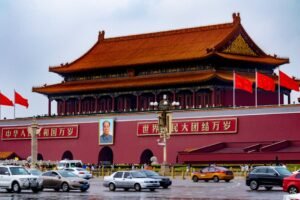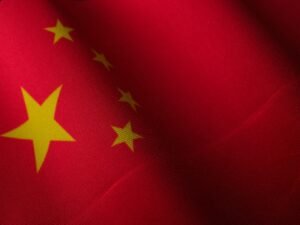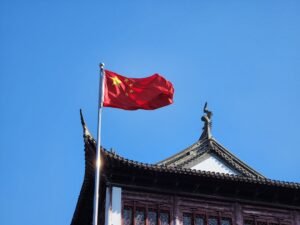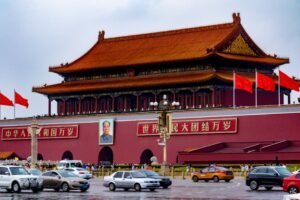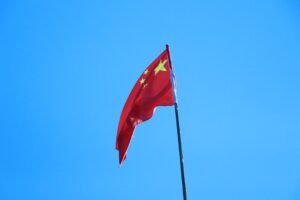Table of Contents
ToggleChinese Historical Figures: Language and Legacy
Introduction
The vast tapestry of 中国 (Zhōngguó – China) history, stretching back 五千年 (wǔ qiān nián – five thousand years), is woven with the threads of countless 伟人 (wěirén – great figures). These luminaries have not only shaped the nation’s 文化 (wénhuà – culture) and 政治 (zhèngzhì – politics) but have also left an indelible mark on its 语言 (yǔyán – language). From wise 哲学家 (zhéxué jiā – philosophers) contemplating the essence of 美德 (měidé – virtue) to gifted 诗人 (shīrén – poets) painting vivid landscapes with their words, these historical figures have enriched the Chinese language in ways that continue to resonate today.
As we embark on this journey through time, we’ll explore ten such figures whose words and ideas have become integral to the Chinese linguistic landscape. Their legacies offer us a window into the evolution of Chinese thought, literature, and society across the millennia.
1. 孔子 (Kǒng Zǐ) – Confucius
In the tumultuous Spring and Autumn period of ancient China, a time of political fragmentation and moral decline, there emerged a figure whose teachings would come to define Chinese culture for millennia. Born in 551 BCE in the state of Lu, Confucius devoted his life to reviving the moral and social values he believed were essential for a harmonious society.
Confucius’s life was marked by both struggle and profound intellectual achievement. As a young man, he held minor government positions, but his true calling was as an educator. He opened his doors to students from all social classes, a revolutionary concept in his time.
Linguistic Legacy:
- 三人行,必有我师 (Sān rén xíng, bì yǒu wǒ shī) “Among three people walking, there is always a teacher for me.” This phrase encourages humility and continuous learning, suggesting that everyone we meet can teach us something.
- 己所不欲,勿施于人 (Jǐ suǒ bù yù, wù shī yú rén) “Do not do to others what you do not want done to yourself.” This is the Confucian version of the Golden Rule, emphasizing empathy and ethical behavior.
2. 老子 (Lǎo Zǐ) – Laozi
While Confucius sought to reform society through moral education and proper conduct, another figure emerged whose teachings offered a different path to harmony and enlightenment. Laozi, whose name literally means “Old Master,” is a semi-legendary figure believed to have lived in the 6th century BCE.
According to tradition, Laozi worked as an archivist in the imperial library of the Zhou Dynasty. Disillusioned with the corruption and decay of society, he decided to leave civilization behind. As he was about to pass through the western border of the state, the guardian of the pass asked him to write down his wisdom before departing. The result was the 道德经 (Dào Dé Jīng – Tao Te Ching).
Linguistic Legacy:
- 道法自然 (Dào fǎ zìrán) “The Way follows nature.” This phrase encapsulates the Taoist ideal of living in harmony with the natural world and the flow of the universe.
- 上善若水 (Shàng shàn ruò shuǐ) “The highest good is like water.” This metaphor illustrates the Taoist virtue of flexibility, adaptability, and nurturing without contention.
3. 屈原 (Qū Yuán) – Qu Yuan
As we move from philosophy to literature, we encounter Qu Yuan, a figure whose life and works embody the deep connection between poetry and politics in Chinese culture. Born in the state of 楚国 (Chǔ guó – State of Chu) during the Warring States period, Qu Yuan was both a statesman and a poet.
Qu Yuan served as a high-ranking official in the Chu court, known for his integrity and his advocacy for political reform. However, his outspoken nature and opposition to corruption made him enemies among other courtiers. Through their intrigues, Qu Yuan was eventually slandered and exiled by the king he had so faithfully served.
Linguistic Legacy:
- 路漫漫其修远兮,吾将上下而求索 (Lù mànmàn qí xiū yuǎn xī, wú jiāng shàngxià ér qiúsuǒ) “The road ahead is long and arduous, I will search high and low.” This line from his famous poem 离骚 (Lí Sāo – Encountering Sorrow) expresses determination in the face of adversity.
4. 司马迁 (Sīmǎ Qiān) – Sima Qian
Moving from the poetic realms to the domain of historical records, we encounter Sima Qian, a figure whose monumental work laid the foundation for Chinese historiography. Born around 145 BCE during the Han Dynasty, Sima Qian inherited the position of Grand Historian from his father.
Sima Qian’s life took a dramatic turn when he defended a disgraced general, incurring the wrath of Emperor Wu. Faced with a choice between suicide and the humiliation of castration, Sima Qian chose to live in order to complete his historical work, the 史记 (Shǐ Jì – Records of the Grand Historian).
Linguistic Legacy:
- 名垂青史 (Míng chuí qīng shǐ) “Name handed down in the annals of history.” This phrase is now used to describe those whose deeds are worthy of historical remembrance.
5. 李白 (Lǐ Bái) – Li Bai
As we enter the golden age of Chinese poetry during the Tang Dynasty, we encounter Li Bai, a figure whose life and works epitomize the romantic ideal of the wandering poet. Born in 701 CE, Li Bai showed prodigious talent from an early age.
Unlike many of his contemporaries who sought success through the imperial examination system, Li Bai chose a life of wandering and adventure. His poetry reflects this lifelong journey, filled with vivid descriptions of nature, expressions of friendship, and a touch of Taoist mysticism.
Linguistic Legacy:
- 床前明月光,疑是地上霜 (Chuáng qián míng yuè guāng, yí shì dì shàng shuāng) “Before my bed, the moonlight shines, I wonder if it’s frost on the ground.” These opening lines from one of Li Bai’s most famous poems have become deeply ingrained in Chinese cultural consciousness.
6. 杜甫 (Dù Fǔ) – Du Fu
If Li Bai represents the romantic, free-spirited side of Tang poetry, then Du Fu embodies its moral conscience and historical awareness. Born in 712 CE to a minor official family, Du Fu’s life was marked by political turmoil and personal hardship.
Du Fu’s experiences of war, displacement, and poverty profoundly influenced his poetry. Known as the 诗圣 (Shī Shèng – Poetry Sage), he chronicled the sufferings of the common people and the decline of the dynasty with unflinching realism and deep empathy.
Linguistic Legacy:
- 国破山河在,城春草木深 (Guó pò shānhé zài, chéng chūn cǎomù shēn) “The country is broken, but mountains and rivers remain; the city enters spring, grass and trees grow deep.” These lines from “Spring View” encapsulate the endurance of nature amidst human tragedy.
7. 王羲之 (Wáng Xīzhī) – Wang Xizhi
Shifting our focus from the realm of poetry to the visual art of writing itself, we encounter Wang Xizhi, a figure whose influence on Chinese calligraphy is so profound that he is often referred to as the 书圣 (Shū Shèng – Sage of Calligraphy).
Born in 303 CE during the tumultuous period of the Six Dynasties, Wang Xizhi developed his unparalleled skill in calligraphy, an art form that in China is considered equal to painting in its expressive power.
Linguistic Legacy:
- 笔墨如神 (Bǐmò rú shén) “Brush and ink work like magic.” This phrase is often used to describe calligraphy of the highest quality, evoking Wang Xizhi’s legendary skill.
8. 朱熹 (Zhū Xī) – Zhu Xi
As we move into the Song Dynasty, we encounter Zhu Xi, a figure whose philosophical synthesis would shape Chinese intellectual life for centuries to come. Born in 1130 CE, Zhu Xi lived during a time of both cultural flowering and political crisis.
Zhu Xi’s great achievement was the systematization of 新儒学 (Xīn Rúxué – Neo-Confucianism), integrating elements of Confucianism, Buddhism, and Taoism into a coherent philosophical system.
Linguistic Legacy:
- 格物致知 (Gé wù zhì zhī) “Investigate things to extend knowledge.” This phrase encapsulates Zhu Xi’s epistemology, emphasizing the importance of empirical investigation in the pursuit of understanding.
9. 曹雪芹 (Cáo Xuěqín) – Cao Xueqin
As we enter the Qing Dynasty, we encounter Cao Xueqin, the author of one of China’s most celebrated novels, 红楼梦 (Hóng Lóu Mèng – Dream of the Red Chamber). Born around 1715 into a family that had once been prominent but had fallen from favor, Cao Xueqin’s life was marked by the decline of family fortunes.
What sets Cao Xueqin’s work apart is its psychological depth, its vivid characterizations, and its unflinching portrayal of the decline of a great family.
Linguistic Legacy:
- 金玉良缘 (Jīn yù liáng yuán) “A perfect match of gold and jade” (referring to an ideal marriage) This phrase, describing the relationship between two main characters, has become a common expression for an ideal romantic pairing.
10. 鲁迅 (Lǔ Xùn) – Lu Xun
As we enter the tumultuous early 20th century, we encounter Lu Xun, a writer whose incisive social criticism and innovative literary style would earn him the title of “Father of Modern Chinese Literature.”
Initially trained in medicine in Japan, Lu Xun abandoned this career to pursue writing, believing that what China needed most was a cure for its spiritual and cultural malaise. He played a key role in the 新文化运动 (Xīn Wénhuà Yùndòng – New Culture Movement) that sought to modernize Chinese thought and culture.
Linguistic Legacy:
- 哀其不幸,怒其不争 (Āi qí bù xìng, nù qí bù zhēng) “Pity their misfortune, but be angry at their refusal to struggle.” This expression encapsulates Lu Xun’s complex attitude towards the Chinese people, combining compassion with exhortation.
Conclusion
These 历史人物 (lìshǐ rénwù – historical figures) have profoundly shaped the Chinese language. Their 词语 (cíyǔ – words and phrases) and 成语 (chéngyǰ – idioms) continue to enrich modern Chinese, bridging the gap between 古代 (gǔdài – ancient times) and 现代 (xiàndài – modern times), and providing insights into the enduring 价值观 (jiàzhíguān – values) and 思想 (sīxiǎng – thoughts) of Chinese civilization. As China continues to evolve in the 21st century, the linguistic legacies of these historical figures serve as a bridge between past and present, offering a shared cultural vocabulary that unites Chinese speakers across time and space.
Vocabulary list of the key words and phrases
- 中国 (Zhōngguó) – China
- 五千年 (wǔ qiān nián) – five thousand years
- 伟人 (wěirén) – great figures
- 文化 (wénhuà) – culture
- 政治 (zhèngzhì) – politics
- 语言 (yǔyán) – language
- 哲学家 (zhéxué jiā) – philosophers
- 美德 (měidé) – virtue
- 诗人 (shīrén) – poets
- 论语 (Lún Yǔ) – Analects
- 仁 (rén) – benevolence
- 礼 (lǐ) – propriety
- 孝 (xiào) – filial piety
- 道德经 (Dào Dé Jīng) – Tao Te Ching
- 道 (Dào) – the Way
- 无为 (wú wéi) – non-action
- 楚国 (Chǔ guó) – State of Chu
- 楚辞 (Chǔ Cí) – Songs of Chu
- 离骚 (Lí Sāo) – Encountering Sorrow
- 史圣 (Shǐ Shèng) – Sage of History
- 史记 (Shǐ Jì) – Records of the Grand Historian
- 诗仙 (Shī Xiān) – Poetry Immortal
- 唐朝 (Táng cháo) – Tang Dynasty
- 豪放 (háofàng) – bold and unconstrained
- 诗圣 (Shī Shèng) – Poetry Sage
- 忧国忧民 (yōu guó yōu mín) – concern for the country and people
- 书圣 (Shū Shèng) – Sage of Calligraphy
- 行书 (xíngshū) – running script
- 宋朝 (Sòng cháo) – Song Dynasty
- 新儒学 (Xīn Rúxué) – Neo-Confucianism
- 红楼梦 (Hóng Lóu Mèng) – Dream of the Red Chamber
- 四大名著 (sì dà míngzhù) – Four Great Classical Novels
- 新文化运动 (Xīn Wénhuà Yùndòng) – New Culture Movement
- 历史人物 (lìshǐ rénwù) – historical figures
- 词语 (cíyǔ) – words and phrases
- 成语 (chéngyǔ) – idioms
- 古代 (gǔdài) – ancient times
- 现代 (xiàndài) – modern times
- 价值观 (jiàzhíguān) – values
- 思想 (sīxiǎng) – thoughts



